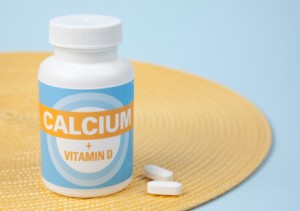After I looked through the November issue of the Harvard Heart Letter I decided to revisit the calcium supplement issue I wrote about several months ago.
Harvard researchers published an article in Annals of Internal Medicine in March of this year. They did a meta-analysis of 17 studies that examined results from calcium supplementation, or vitamin D supplementation, or both, with an emphasis on cardiovascular disease (CVD). A meta-analysis statistically combines the results of several studies that address a shared research hypotheses.
A friend gave me Tom Siegfried's article on statistical significance from the March 27, 2010 edition of Science News. It's title is "Odds are, it's Wrong." What it basically said was our way of deciding if a conclusion is valid is flawed much of the time. We really often need to examine the results of several studies and then see if the studies were actually designed to look at the general population.
We also need to examine at the level of confidence in the results. The standard we most often use is a p value of 0,05; that translates as one possibility in twenty that a result happened by chance. Is that good enough? I'd be very comfortable if the possibility was one in ten thousand, but one in twenty? A later comment in the same journal added casuality, e.g, Although 100% of people who die of stomach cancer drank milk as kids, that doesn't mean milk causes stomach cancer.
So let's go back to the Harvard paper and see how it applies to you and me. The Harvard folk started with 1,484 possible articles and came up with only17 that met their criteria. They wanted to limit their included research projects to prospective controlled studies in adults. They excluded, among others, review articles, letters to the editor, papers where there was no control group, retrospective studies or studies in children.
So far, so good. But when I drilled down into the remaining articles, many were done on dialysis patients, not a general population. Some were projects were only vitamin D was taken, some where just calcium was given, some where both were supplemented.
In terms of the general population they only found one study where just vitamin D was taken by the participants. Even that one was flawed; it didn't include sufficient information on sun exposure or duration of vitamin D supplementation. It did conclude that postmenopausal women (34,486 of them), not only didn't increase their CVD risk by taking vitamin D; they likely decreased it. Other studies I've ready recently aren't as sure of the cardiovascular benefits of vitamin D.
We really do need vitamin D; it helps us absorb calcium and has other roles including maintaining healthy bones. The NIH says most healthy adults can safely take vitamin D in doses up to 2,000 IU/day, The Harvard Heart Letter said 800 to 1,000 IU/day. Sun exposure is the other place we get it, 10 to 15 minutes a day without sunscreen is enough.
The New Zealand article, published in the British Medical Journal in August 2010, said there was a 30% increase in cardiovascular events in people taking calcium supplements. But...the increase in heart attack frequency was one person in 200. Additionally their study excluded anyone also taking vitamin D; that makes less sense to me. The only study reviewed by the Harvard researchers that looked at combined calcium and vitamin D supplements showed no increase in CVD risk.
So I'm still not taking calcium tablets, but I am drinking skim milk (low-fat is another choice if you hate skim milk) and eating some non-fat yogurt daily. And I'm taking vitamin D.


I've discovered that maintaining optimal levels of Vitamin D has proven to be vital to just about every aspect of good health, from disease prevention to strong bones and mental alertness.
We're also taking vitamin D regularly and in larger dosage than we would have a year ago.
When I see a great article I usually do three things:1.Forward it to all the close friends.2.Bookmark it in some of the favorite bookmarking websites.3.Make sure to come back to the site where I came accross the post.After reading this post I'm really thinking of doing all of them.
Thanks for the comment. I appreciated your remarks.
Peter
That's not true!
Tell me why you think so; please supply the data behind your answer.
Peter D. Springberg, MD, FACP